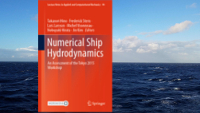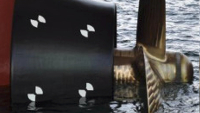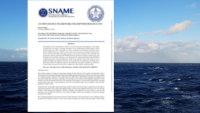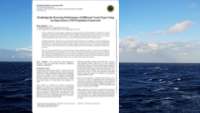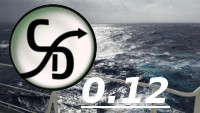2020-11-30
SHORTCUt has been around since 2015; and the origins of the self propulsion framework was all the way back in 2010 with OpenFOAM v1.7. The framework and SHORTCUt have seen frequent use in commercial applications since then. The main obstacle to public release has been a lack of non-proprietary propeller models. This has been remedied and SHORTCUt is now completely open source and available for download for the first time. The first public version of SHORTCUt (v.0.11) is now available for download in the downloads page. The OpenFOAM self propulsion framework is also available for download as a standalone utility.
In parallel with the release of SHORTCUt, this website has been updated with documentation in the form of a page describing the theory behind the framework, a user guide and a page containing validation cases.
Anyone having questions about SHORTCUt or the OpenFOAM self propulsion framework are encouraged to contact us.
Last updated: 2020-11-30
2020-11-30
New book on state of the art marine CFD contains results by SHORTCUt
The Tokyo 2015 workshop on numerical hydrodynamics was an important benchmarking exercise to fin out the current state of the art of marine CFD. Many leading institutions worldwide submitted calculation results to be compared with experimental data.
Recently, a new book discussing and summarizing the results of the workshop, "Numerical Ship Hydrodynamics : An Assessment of the Tokyo 2015 Workshop" was released. The results listed in the book as "MIJAC (OpenFOAM)" were calculated using the SHORTCUt package. The propeller model used was a proprietary version of the Yamazaki model.
The chart below shows a summary from the book, of various contributors predictions of the wake fraction of a bulk carrier with and without an Energy Saving Device (ESD.) The results marked in red are with the current (open source) version of SHORTCUt. The older version with a proprietary Yamazaki model can also be seen.
More info about this calculation can be found in the validation page.
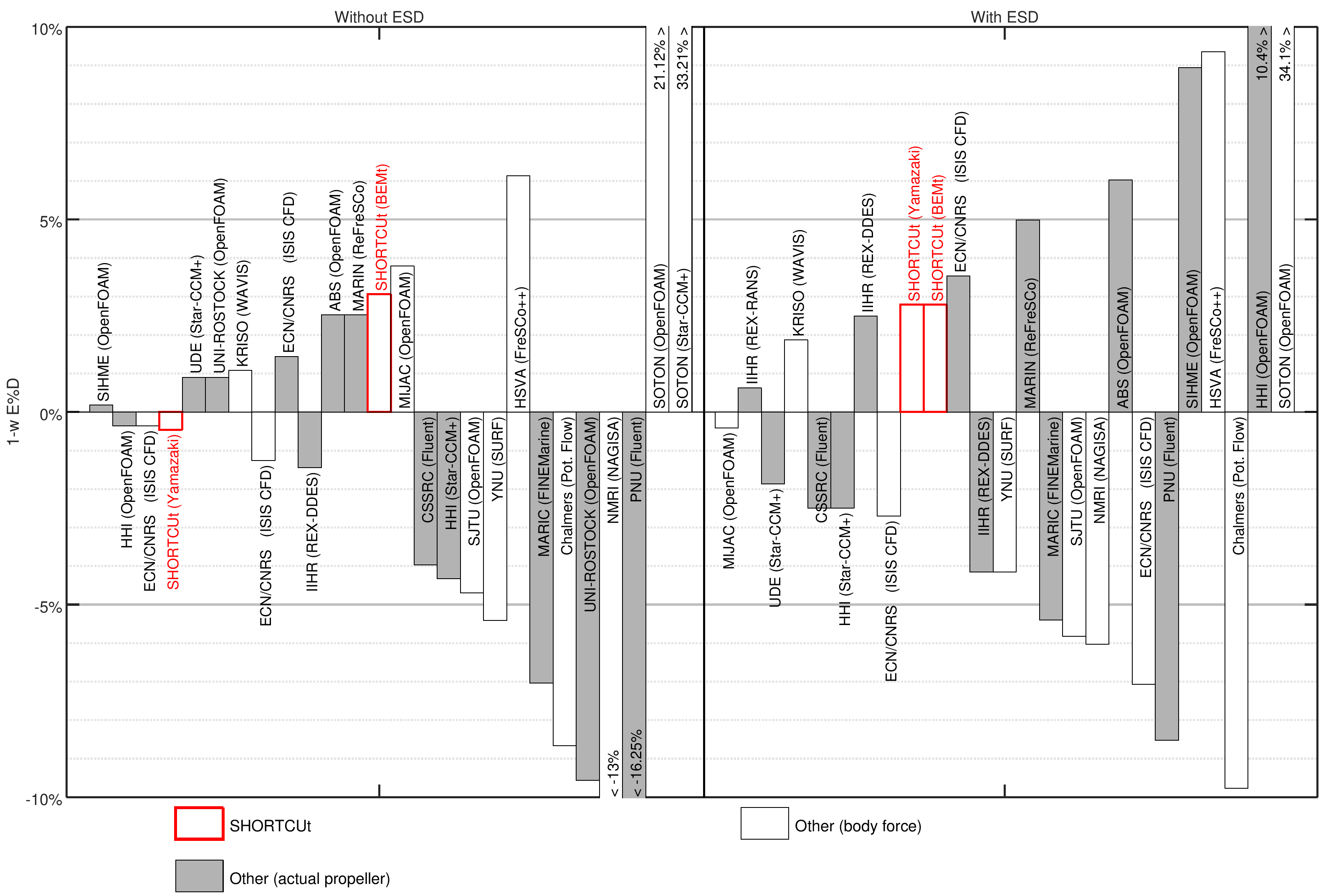
Last updated: 2020-11-30
2020-11-30
First full scale validation of bulk carrier wake features SHORTCUt results
A recently published article in the Journal "Applied Ocean Research", An overset RaNS prediction and validation of full scale stern wake for 1,600TEU container ship and 63,000 DWT bulk carrier with an energy saving device shows the first ever experimentally obtained wake velocities of a bulk carrier in active service compared with CFD. These results are indispensable for better understanding of the full scale wake of a ship and how well it is predicted with CFD.
This article features results by SHORTCUt (indicated as OpenFOAM), using a proprietary version of the Yamazaki model to represent the propeller.
One of the main conclusions of the study was that the roughness setting in the CFD simulation has a major effect on the accuracy of the predicted wake velocities. The SHORTCUt results are also comparable with the commercial NAGISA solver that is also featured in the article.
Last updated: 2020-11-30
2021-05-01
SHORTCUt presented at SNAME Offshore Symposium 2021
The capabilities of SHORTCUt were recently presented to the Society of Naval Architects and Marine Engineers (SNAME) at the annual Offshore Symposium. The paper titled An Open-Source Framework for Ship Performance CFD is available from OnePetro and gives an overview of the features of SHORTCUt as well as presenting the JBC validation study shown in the validation page.
Last updated: 2021-05-01
2021-11-09
SHORTCUt presented at SNAME Maritime Convention 2021
The capabilities of SHORTCUt were recently presented to the Society of Naval Architects and Marine Engineers (SNAME) at the annual Maritime Convention. The paper is titled Predicting the Powering Performance of Different Vessel Types using an Open-Source CFD Propulsion Framework and is available from OnePetro. The paper concerns tha ability of SHORTCUt to standardize calculations for different vessel types and presents several of the validation studies shown in the validation page.
Last updated: 2021-11-07
2023-01-20
The latest public version of SHORTCUt (v.0.12) is now available for download in the downloads page. Changes from the previous version are listed below:
Anyone having questions about SHORTCUt or the OpenFOAM self propulsion framework are encouraged to contact us.
Last updated: 2023-01-20

